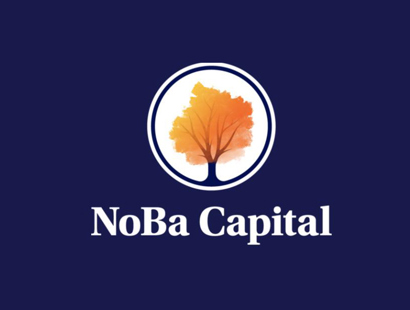
Managing a data room during the due diligence process
Legal assistant Oliver Ward explains how virtual data rooms streamline due diligence and protect sensitive information.
If you’re selling your business or seeking investment, it is important to understand the due diligence process and how data rooms can help when there is a significant amount of information to provide to a buyer for review.
What is a virtual data room and why do you need one?
As part of any transaction, a buyer will generally complete a due diligence process, which requires the seller to make a significant amount of information and documentation available for review by the buyer and their advisers or accountants.
Historically, providing physical copies of documentation was necessary, however this can be risky and inefficient, exposing your business to potential data breaches or confidentiality issues.
A data room (most commonly now electronic, and often referred to as a ‘virtual data room’) is a secure online platform for confidentially sharing sensitive documents during transactions between buyers and sellers.
It allows buyers, legal teams and financial advisers to access information and documentation relating to the target securely and efficiently.
A data room lets you control what documents are shared, with whom, and when, all in a secure, traceable environment.
It also speeds up the process, as buyers can instantly access documentation once uploaded to the electronic data room.
Key features of data rooms
How do they differ from processing documentation in hard form or via email?
Data rooms can have custom user permissions and role-based access, meaning that certain information can be limited to those advisers who need to see it. This helps reduce the risk of confidential information being exposed and it allows the seller to withhold information until disclosure is appropriate.
- Documents within the data room can be watermarked and encrypted, providing protection.
- Data rooms can have pre-set questions or integrated Q&A management enquiries to save time.
- Some data rooms contain advanced redaction tools compliant with GDPR, ensuring that personal data is not exposed (for example employees’ information).
- Data rooms allow full tracking, so the seller can see who has reviewed, downloaded and printed documents contained therein.
Ultimately, whilst many electronic data rooms have advanced features, the main benefit is the ease and speed with which information can be disclosed in an organised manner. They also simplify the disclosure exercise, allowing documentation to be downloaded to an electronic file or USB stick rather than in hard copy.
Managing UK M&A virtual data rooms
What you can expect
The data room is usually set up by the corporate finance or legal adviser on the transaction. They will structure it to align with the due diligence request, so that the folder structure mirrors the questions being asked by the buyer and their advisers, for example, legal due diligence, accounting due diligence and tax due diligence.
Collating documents
Sellers are typically asked to collate a vast array of documents and to upload them to the data room.
Documents which are usually included are as follows:
- the company’s key corporate documents such as articles of association, any shareholder agreements and any options over the shares
- financial records of the company
- employment documents including a template employment contract (if on standard terms)
- intellectual property and data protection policies
- copies of key contracts with customers
- documentation relating to valuable assets such as property
- and many more
Why effective data room management matters
Proper management safeguards confidential data, ensures regulatory compliance, and speeds up the due diligence process. Precise redaction, controlled access, and clear document organisation reduce legal risks and boost buyer confidence - key factors for a successful M&A outcome.
It can also reduce advisers’ fees during the transaction, as a fully organised approach may limit the number of queries raised by the buyer, for example, regarding the location of documentation, or requests for the most up-to-date versions.
General tips for good management of data rooms and document management in due diligence
1. Redaction
- Compliance with GDPR regulations is necessary, which involves not sharing personal data (such as employee details, including names, email addresses and sometimes salaries).
- Sellers must make a commercial decision on what information to share. Some information, such as order fees and names of key customers, may be withheld from the buyers until the latest possible moment.
- Most data room systems provide an integrated redaction feature, allowing personal information and commercially sensitive information to be redacted.
- Before opening a data room, this information should be redacted. Once the data room has been opened, documents containing this information should be redacted prior to uploading.
2. Ensure that user access and permissions are carefully managed
- Access should only be granted when appropriate. When granting access, buyers generally should only be able to download documents and not edit them.
- Group users by role (e.g. buyer’s legal team, financial advisers) to ensure that different groups have appropriate permissions
- Assign view-only permissions and disable downloads for sensitive documents, or seek confirmation that documents can be downloaded in their original format.
- Apply watermarks to deter unauthorised distribution.
- Regularly monitor access logs for suspicious activity.
3. Maintain ongoing data room management and Q&A oversight
- Update and maintain version control documents throughout the deal process.
- Use the data rooms Q&A module to handle buyer enquiries efficiently.
- Clarify any unclear responses and supplementary documents with legal advisers before release.
After the deal: closing the data room
Once the deal is complete:
- ensure that access is revoked for external users
- export full contents of the data room as a record of its contents
- a copy of the data room will usually be provided to the buyer as part of disclosure, or at least as a record of what was provided
Summary
Managing a data room may seem complex, but it ultimately comes down to providing the buyer with clear and accurate information in an organised and timely manner.
Oliver Ward is a legal assistant in the corporate and commercial team.
Get in touch
If you would like to speak with a member of the team you can contact our corporate and commercial solicitors by telephone on +44 (0)20 3826 7539 or complete our enquiry form.









